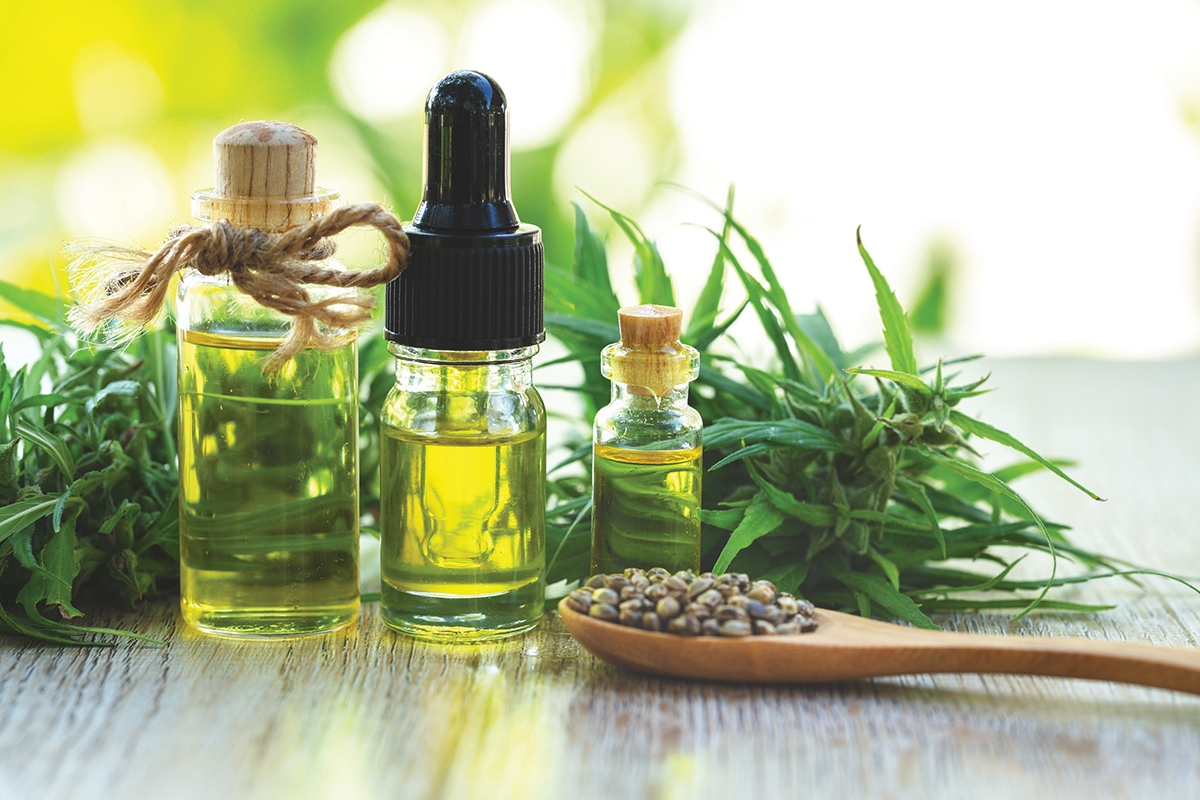CBD 101
Breaking Down The Buzzword

Unless you’ve been living under a rock, you’ve likely heard about CBD recently – it seems that overnight, CBD has popped up everywhere. You’ve driven by that new CBD shop in town, seen an ad about it, or found it at the convenience store. It can be an oil, an ingestible, a cream. It can be found in a variety of goods like shampoo, lattes, pet food, and gummy treats. CBD seems to be everywhere, but what exactly is this new buzzword?
As defined by webmd.com, “Cannabidiol (CBD for short) is a chemical in the Cannabis sativa plant, also known as marijuana or hemp. Over 80 chemicals, known as cannabinoids, have been identified in the Cannabis sativa plant. While delta-9-tetrahydrocannabinol (THC) is the major active ingredient in marijuana, cannabidiol is also obtained from hemp, which contains only very small amounts of THC.” Legally, hemp is classified as containing up to or less than 0.3% of THC.
Before I talk about the health and wellness benefits of hemp and CBD, let me first address one of the most common questions surrounding it – will it get you high? I answer this with an emphatic no! A hemp-derived CBD product will not get you high – as federally mandated by the Farm Bill 2018, it must contain less than 0.3% THC, as I just stated. It is important to note, though, that if you take a drug test, a full-spectrum product does introduce a 5% risk of a positive result, so be aware. It should go without saying that caution is advised when purchasing any CBD product, from any source. Do your research and visit reputable stores to gather the best information, and ask for their Certificates of Analysis. Be aware that about seven out of 10 products on the market are fake. Therefore, you should do a thorough investigation into which product you select.
Now, you’re probably wondering “What can hemp and CBD do for me?” CBD can be a holistically appealing option to anyone who suffers from a myriad of health and wellness concerns, including inflammation, pain, seizures, anxiety and depression, lack of sleep, vomiting or nausea, just to name a few. To further explain what CBD is and how it works, it’s helpful to know the three spectrums of products offered on the market. Full-spectrum refers to the full plant profile, which contains a range of cannabinoids, vitamins, minerals, fatty acids, protein, chlorophyll, terpenes, flavonoids, and fiber. Broad-spectrum refers to the entire plant profile, but lacks the THC, while Isolate contains CBD only, and can be helpful for those who are concerned about drug testing.
Once you have determined which spectrum is right for you, then you can decide which consumption method is most effective for your needs. There are four methods of CBD: sublingual oils, topicals, edibles, and inhalables. Sublingual oils are placed under the tongue for about 30 seconds and are absorbed through your mucosal glands. They are geared toward an everyday regime, like a daily multi-vitamin, and are beneficial for those with chronic health concerns. The onset is typically 30 minutes and can last for up to four hours. Depending on the brand, the carrier oil can vary from MCT-oil to grapeseed. Topicals range from gels, oils, rubs and creams, to bath bombs, and are mainly for skin application when someone is experiencing superficial aches and pains. The onset is typically 15-30 minutes and can be in effect for two-four hours. Edibles are eaten and digested, then absorbed by the intestine. Onset typically takes 30-90 minutes and can last from four-six hours. Inhalable products, when vaped or smoked, create an instant effect when absorbed by the lungs and last one-two hours. So, with all this being said, how do you know how much CBD to consume? This is specific to each person, based on his or her size, metabolism, pain tolerance, and the wellness concern for which he or she is seeking relief. Most people benefit from 10-20 mg, but again, this varies from person to person.
What about hemp seed oil, you may be wondering? While hemp seed oil is a perfect nutritional supplement and is great to cook with, it does not provide any medical benefits. Hemp seed oil is cold pressed from the seeds of the hemp plant, whereas CBD is extracted from the fibers.
CBD’s popularity is very much on the rise and offers many wellness benefits. But as with anything we put in our bodies, it’s important to educate ourselves and research what the best options are – and CBD is no different.
Angelo Belardo
Owner of The Hemp Farmacy, located at 121 S. White Street in Downtown Wake Forest, offeringr made-in-America products from U.S.-grown hemp. Their products are vetted and tested by a third-party lab, then evaluated by experienced staff.

